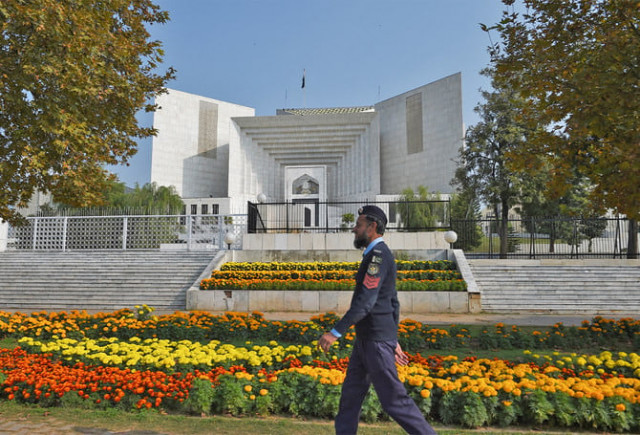NAB law tweaks to promote organised corruption: SC judge
Lawyer tells apex court NAO amendments meant to benefit rulers

The Supreme Court was informed on Wednesday that the recent amendments to the National Accountability Ordinance (NAO) were contrary to the international anti-corruption conventions and it made it impossible to prove corruption of more than Rs500 million.
During the hearing of a petition filed by Pakistan Tehreek-e-Insaf (PTI) Chairman Imran Khan against the amended accountability laws, Justice Ijazul Ahsan remarked that the amendments would promote organised corruption.
The petition was heard by a three-judge special bench led by Chief Justice Umar Ata Bandial and comprising Justice Ijazul Ahsan and Justice Mansoor Ali Shah. The PTI chairman pleaded in his petition that the amendments to the NAO had been made to benefit the ruling party members.
Khawaja Haris, the lawyer for the petitioner, continued his arguments on the fifth day. He pointed out that the decisions of the cabinet and the development working parties had also been excluded from the National Accountability Bureau’s (NAB) jurisdiction.
However, the chief justice remarked that decisions were taken in the committees and the cabinet, and asked whether the entire cabinet or committee would be accused for collective decision. In that case, he further asked, who would take the decisions.
Chief Justice Bandial also said that if parliament started doing everything, the decision-making process would slow down. He mentioned that many bureaucrats were acquitted in the NAB references but served jail terms. Sometimes the situation was not under the control of the bureaucracy, he said.
Haris said that the NAB amendments were also against the international anti-corruption convention. The chief justice remarked that having assets in excess of income was a crime all over the world, adding that the court would review the amendments in the context of international standards and the local law.
The lawyer argued that after the NAB amendments it had been made impossible to prove the corruption of more than Rs500 million. Justice Ahsan remarked that organised corruption would be promoted by the amendments.
The amendment, he added, allowed financial benefits which were not covered by the NAO.
After the amendments, Haris said, action could be taken only after the financial benefit was proven. For abuse of power, he continued, the direct benefit from a public office holder must be proved. Similarly, he said, a case would not be made on the financial benefits of the public official’s frontman and children.
Responding to an inquiry from Justice Shah, Haris said that there was no other law regarding abuse of power. Justice Shah asked whether the amended law would have been challenged in 1999, when the law was originally enacted. Haris said that it could be challenged in case of issues in its implementation.
Continuing his arguments, Haris informed the bench that the recent NAB law amendments were enacted to benefit certain individuals. He added that the first target of the present rulers was to end NAB cases against them. Later, the hearing was adjourned until next Tuesday.
After the hearing, senior PTI leader Fawad Chaudhry told reporters that parliament could not use any power against the will of the people. He added that evidence obtained from abroad was no longer acceptable to NAB. He hoped the Supreme Court would strike down the NAB law amendments.



















COMMENTS
Comments are moderated and generally will be posted if they are on-topic and not abusive.
For more information, please see our Comments FAQ